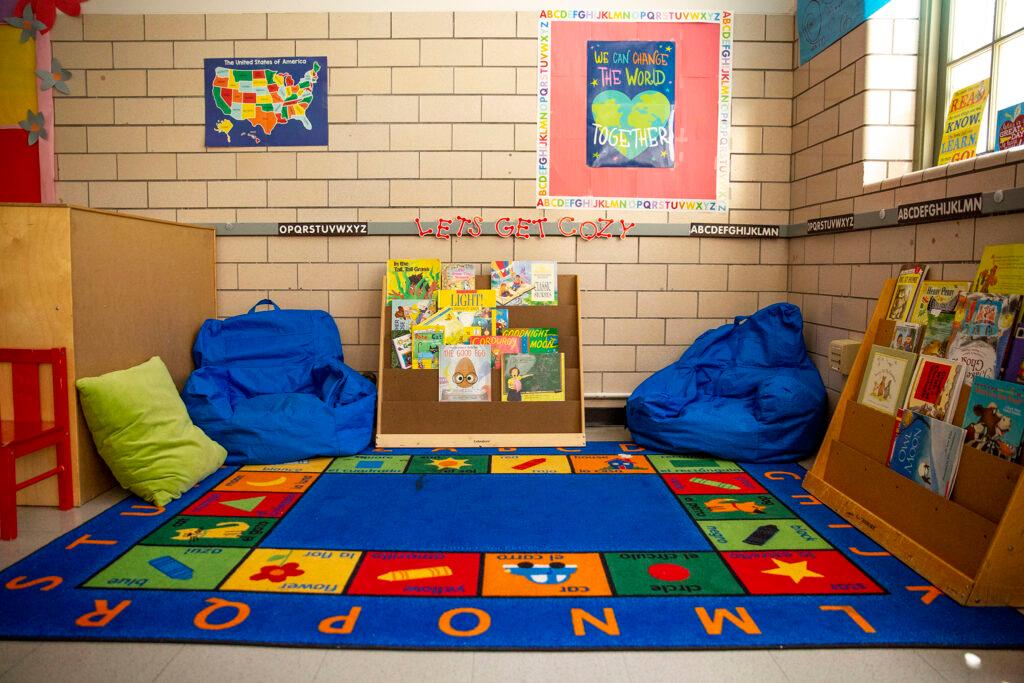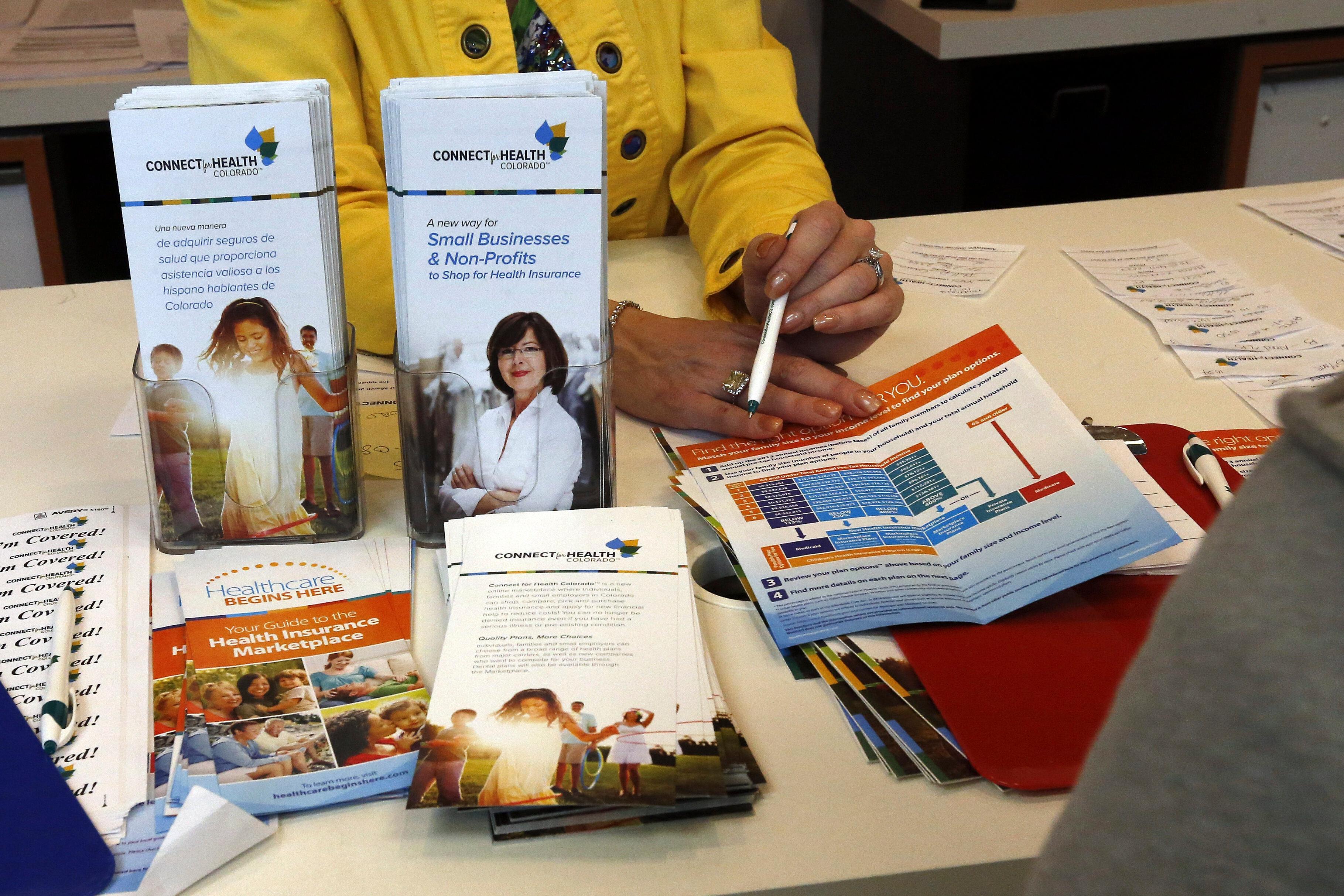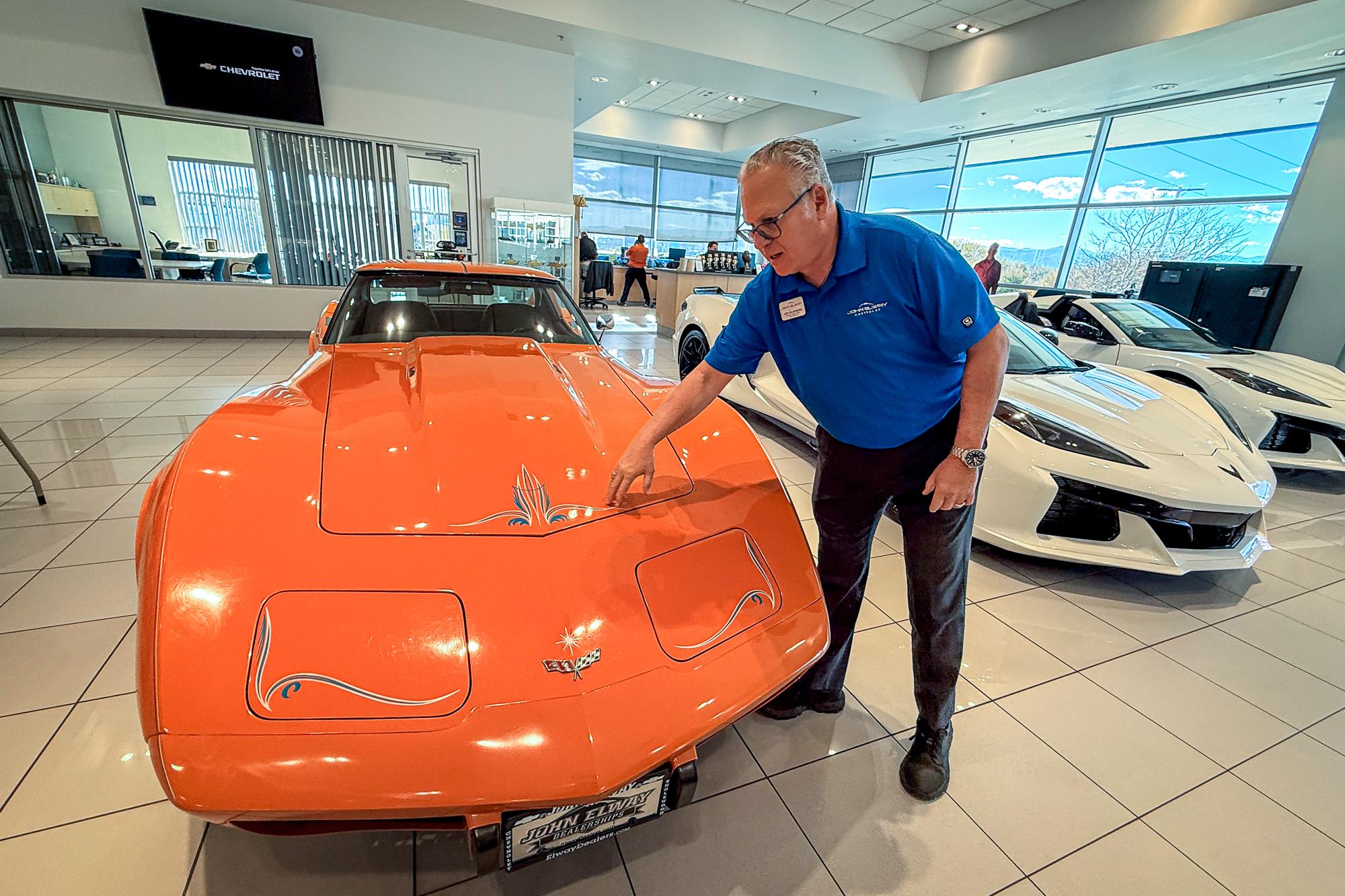
This is a part of an occasional series looking at aspects of Colorado’s faltering economy.
The market for new cars in the U.S. hit a significant milestone in September. For the first time, the average price topped $50,000.
That’s causing some major sticker shock for buyers. And it’s not the only indicator of whether the industry might be sputtering, which has implications for the overall economy.
Here’s a look at three factors at play in the state and beyond.
The EV Craze consumed Colorado
Bridget Myers of Boulder remembers when $50,000 could buy a home decades ago. And when she needed a new car, the price tags she saw led her to leasing an electric vehicle. Her first.
That’s because the deal she got on a new Nissan Leaf was too good to pass up.
“They had a rebate system, so it was very economical,” she said. “Instead of paying several hundred a month, I have a leased vehicle that costs $54.”
And she’s not alone. Many Coloradans rushed to buy or lease EVs, lured in by those attractive incentives.
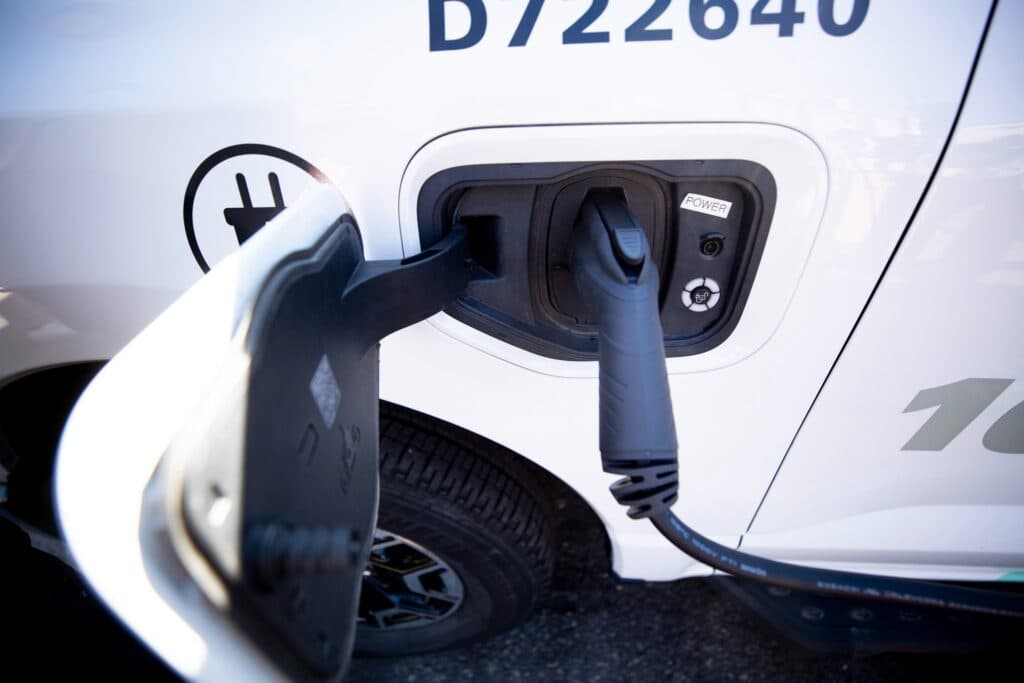
In the third quarter of this year, battery-powered EVs made up 26.4% of the cars registered in Colorado. That big spike was largely due to federal tax credits going away right before October. Over that same period, more than 438,000 EVs were sold or leased in the U.S. That’s a tenth of the total market share nationwide.
“Good or bad, EVs were brought to us,” Jeff Silverberg, general manager of John Elway Chevrolet in Englewood, said. “It wasn't really the consumer pulling for them, it was more so the manufacturer, the governments certainly pushing them. Now, as a car dealer, I think most everyone in my position would agree, I will sell anything.”
And that includes selling EVs with savings that were “generationally good,” Silverberg said.
“There's no calculator on Earth that says a $70,000 vehicle should lease for $249. Certainly not a good one. And that's what we saw.”
Screaming deals on EVs also helped fill the growing void of compact and budget cars. While cheaper sedans like the Ford Focus have gone away, others like the Toyota Corolla keep getting more expensive.
As for Myers, leasing her Nissan Leaf was also about finding something environmentally friendly. But with the federal rebates now gone and state rebates taking a hit too, that could turn the EV market on its head. And when her lease is up, Myers isn’t sure what she’ll do.
“What we would look at is: Is it cost-effective? Would we buy this car outright? Would we continue just to lease it? Does our lease rate go up?”
Manufacturers and dealers are hedging their bets
Tommy Mica and his dad, Roman, run The Fast Lane (TFL) Car. Roman’s a former TV reporter, and now they’re content creators who cover the auto industry, and they say automakers seem unsure about the economic future.
“On the face of it, things seem good. The sales numbers are still strong,” Tommy said. “But I get that there's this underlying tone across the majority of manufacturers [that] things are not OK.”
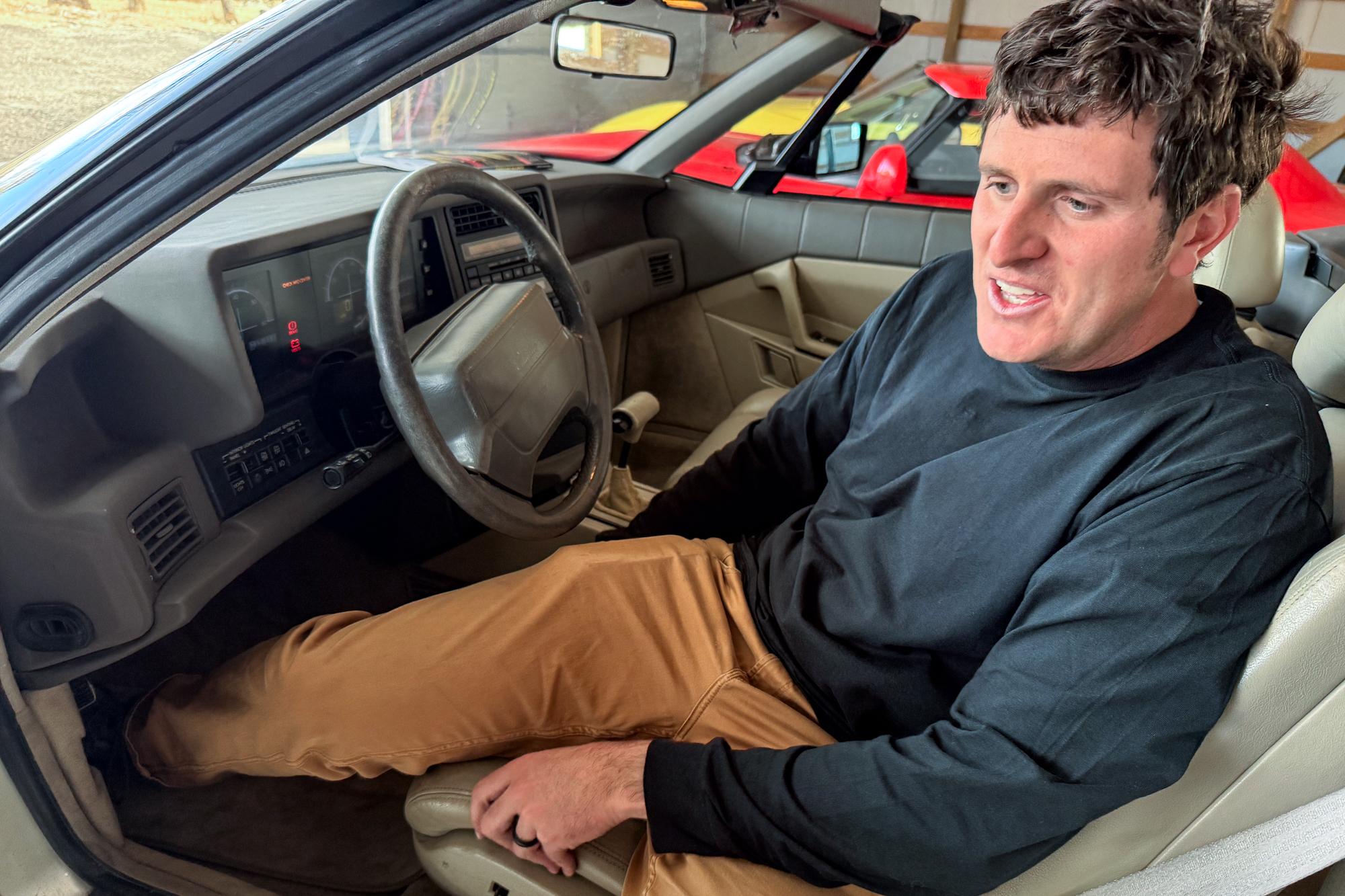
TFL Car gets millions of views a month across its social media channels. The Micas have 22 acres of testing grounds near Berthoud, and they’re all about automotive performance. But they’ve also got their fingers on the pulse of the car economy.
And right now, tariffs are a big wildcard.
“Because these are companies that move incredibly slowly,” Tommy said. “They take years and years to make decisions, and they can't make decisions if the laws are changing every couple of weeks.”
And Tommy stressed that there’s no such thing as an American-made car anymore.
“Your cars are made from parts from around the world, and these companies are losing it trying to figure out how to keep the wheels on the bus, both literally and figuratively,” he said.
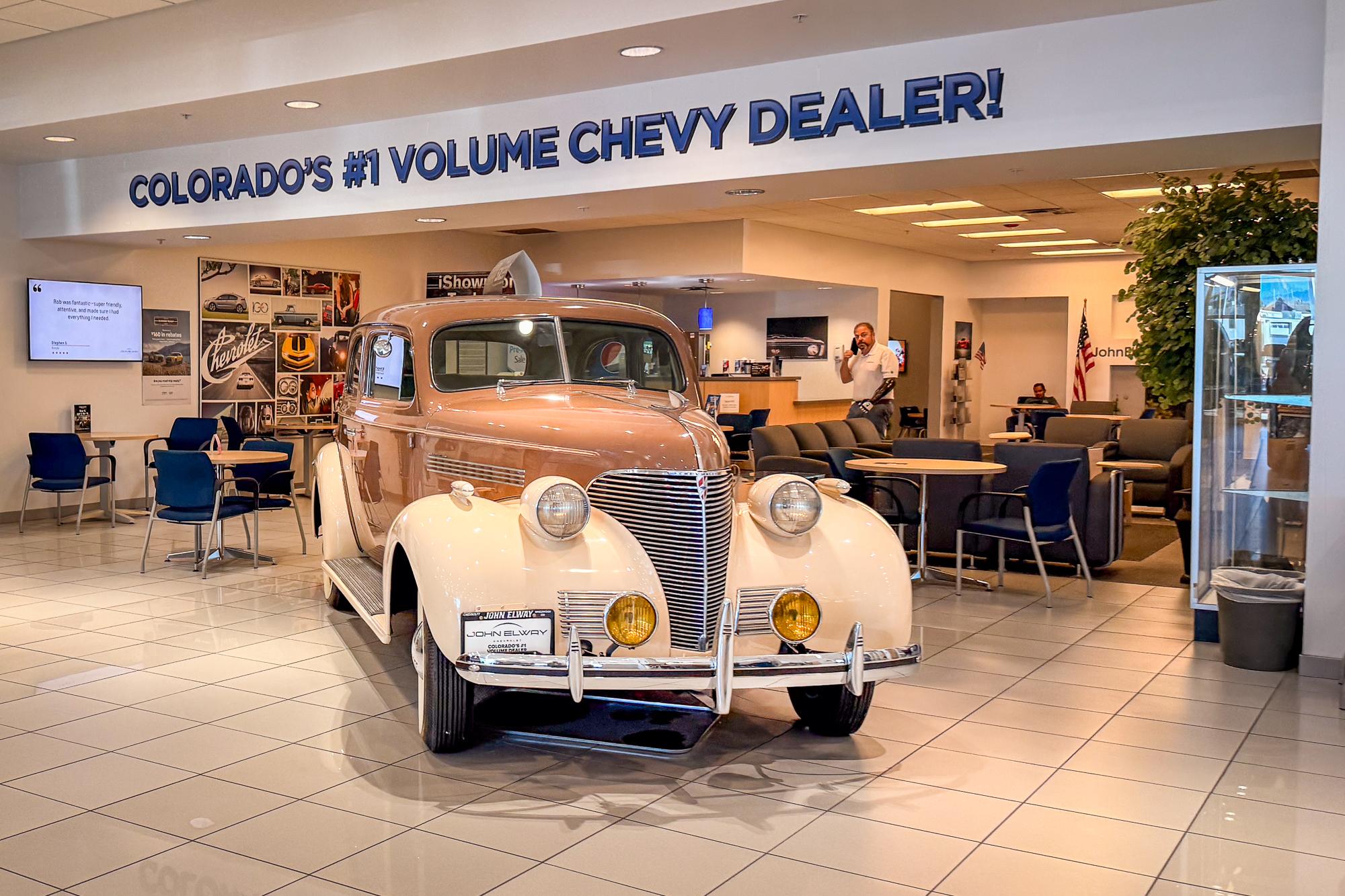
For Silverberg of John Elway Chevrolet, he said manufacturers and dealers like his are trying to hedge.
“Certainty is good for business, and positive certainty is even better than negative certainty. We don't see a lot of certainty.”
On top of fewer EV incentives and tariffs increasing costs, buyers are also seeing high interest rates and all sorts of fees that can be tacked on when buying a vehicle.
“So I think people are doing what is normal in human nature, which is keep your hands close to the vest when you're not so sure about what's going on,” Silverberg said.
What about the financials and the risks?
To be clear, people are still buying vehicles. But there are other trends to note.
For one, nearly 20% of monthly payments for new cars are above $1,000, according to Edmunds. That’s tied to more sales of big SUVs, trucks and luxury vehicles. For used vehicles, those payments now make up over 6%, which is an all-time high.
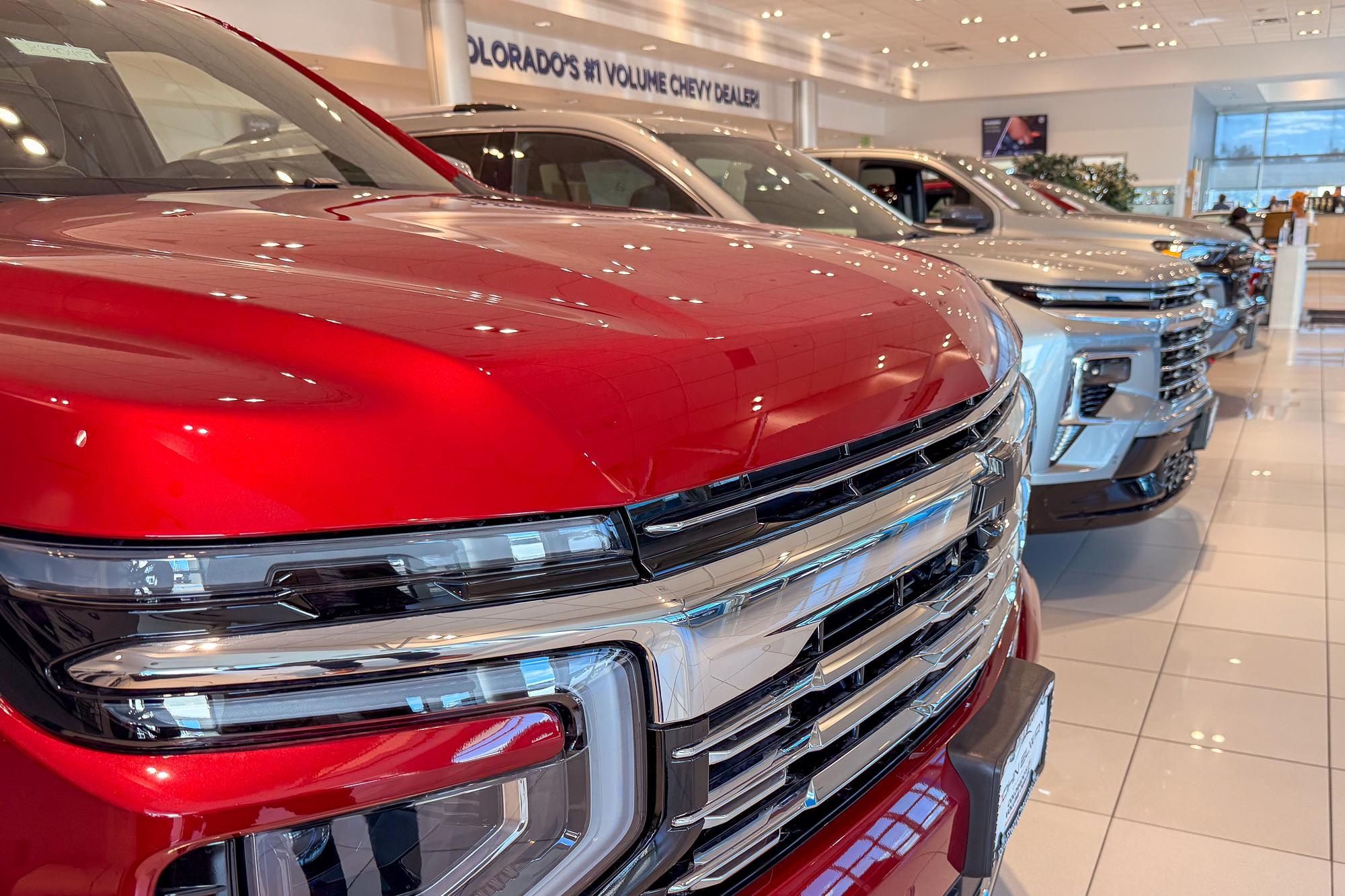
On top of bigger monthly payments, the average down payment is at its lowest in 4 years. Plus, many buyers are taking out longer-term loans. And keeping up with payments over the long term could get really tough for some buyers.
Shaun Davies, an associate professor of finance at the University of Colorado Boulder, points to subprime auto loans. Those are for people with poorer credit, and they tend to come with higher interest rates and fees.
“Delinquency rates of 60 days plus on [those] payments is ticking upward,” Davies said.
More than 6.5% of borrowers have defaulted on those loans recently, “which is definitely concerning,” Davies added.
“That's oftentimes the canary in the coal mine because these are the folks with the most limited access to credit.”
It is just one measure, and Davies stressed that subprime auto loans typically account for 15 to 20% of all auto loans. But this rise suggests more households are being squeezed, with some having to choose between car payments and things like covering rent or buying groceries.
“And when we start seeing them pull back, that can be a sign or a warning sign of things to come for the general economy,” Davies said.
When gauging the overall health of our economy, Davies looks for different indicators. And he does point to one strong sign: Banks have a lot more capital on hand than they did right before the Great Recession.
“We're not horrible yet,” he said.
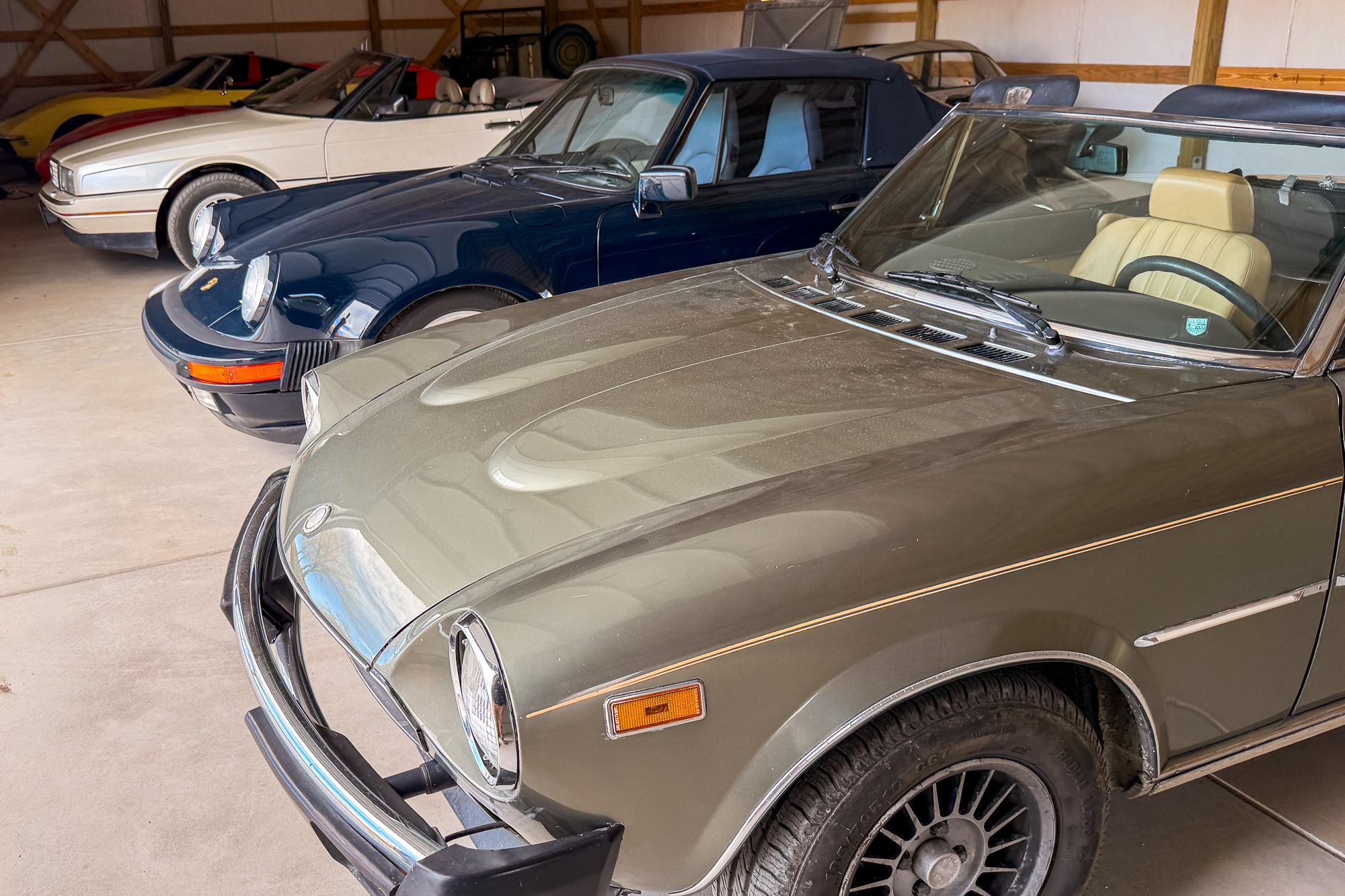
Tommy Mica of TFL Car says the 1989 Cadillac Allante he bought used for around $2,000 is popular among his viewers, who love to watch videos about it.
“There is a tremendous amount of interest in cars that people can buy for under $5,000,” he said. “So this is something that we've found a niche in; folks really want to see how far their dollar can go.”
But the used market has gotten really expensive and competitive too, especially for cars made in the last five years. While reporting this story, other Coloradans said it made no sense to even consider buying used because the value just isn’t there.
And when it comes to buying a new car and getting the best deal, Mica urged shoppers not to be super picky.
“It is genuinely impossible to buy a bad new car,” he said. “Unless you get one of the very rare cases of a lemon, they are going to be reliable and safe and have good technology and be quiet and do your thing.”

Colorado’s economy is flashing warning signs. Job growth has slowed to a trickle. Layoffs are inching up. The housing market is in a slump. Both the state and its biggest population center are struggling to plug massive budget holes. On top of all that, the longest government shutdown in history was weighing on the economy.
The big question, though, is whether all the bleak data points to something more serious: recession. And the answer is complicated.
Colorado Public Radio takes a look at what those warning signs might mean through the new series Silent Recession. Read more stories in the series here.


